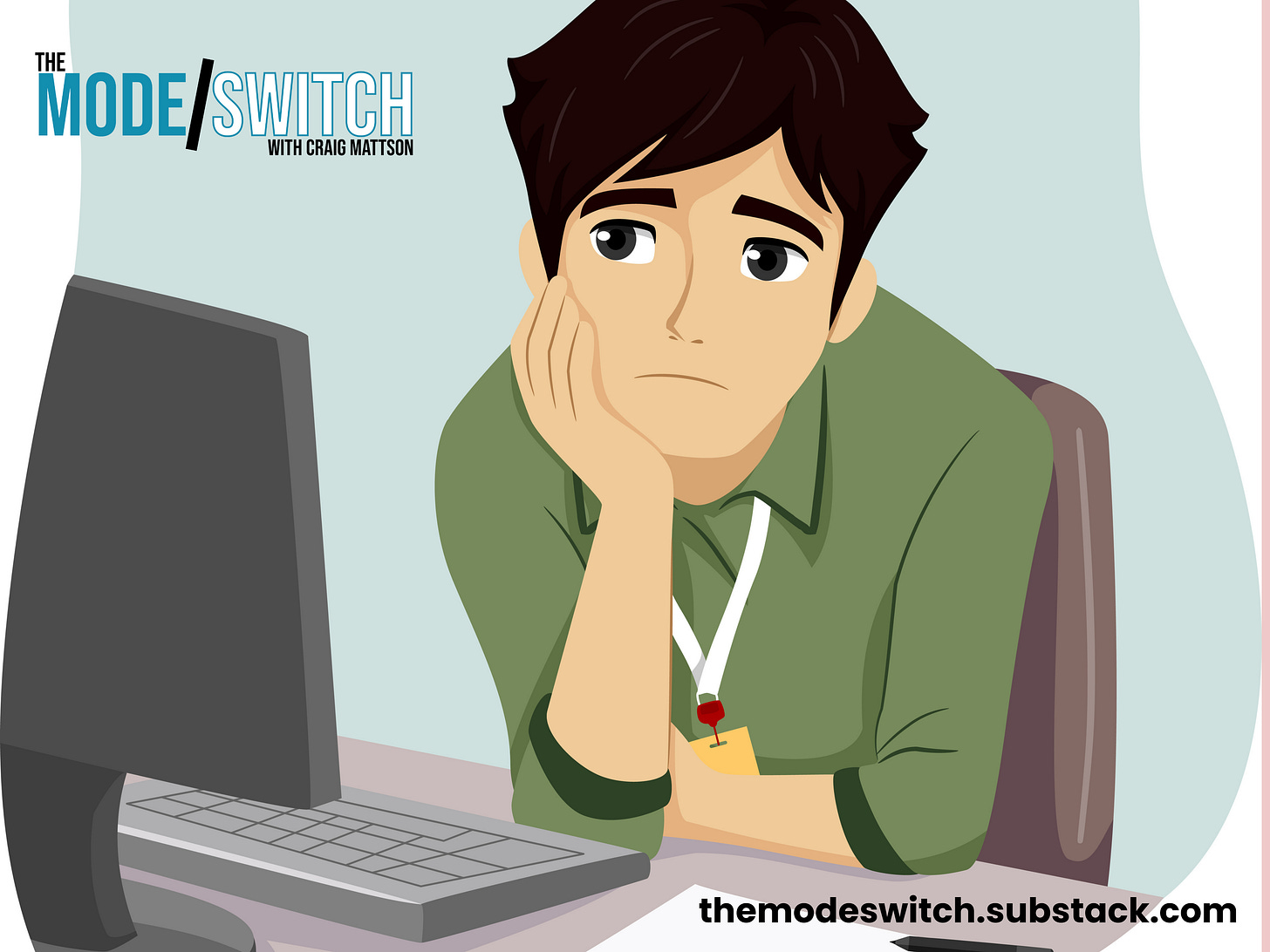Glad to welcome Ben Hoekstra as a guest contributor for this week’s issue. He’s a GenZellenial working professional, a manager of a team for a major health company, and someone who knows a lot about the early-career “mandate” to carry everybody’s coffee except your own.
“What do you want to do?”
That’s a question I ask when, as a PR professional in health care, I connect with interns or guest speak in a college class. Often, the answer I hear mentions strategy meetings and being a part of the big picture. Every time, I’m reminded of a comment a former boss of mine made when we were hiring an intern. “Interns aren’t here to drive strategy.”
My boss wasn’t wrong to say that interns aren’t hired to steer the ship, but that saying (passed on to her from someone else) points to a deeper issue. There has long been an understanding in the workplace that each of us must “pay our dues,” working in a menial role and doing more boring work before we get to do the fun stuff.
There’s an inherent cynicism in the way we talk about this, a sort of “if I had to do it, so do you” mentality that inflicts upon our younger colleagues the same frustrating barriers and dead-end assignments we once faced like correcting spreadsheet formatting, converting documents, and triple-checking lists.
I cut my teeth in menial tasks, starting out of college in a role that mixed event planning with communications. My to-do list was full of logistics. When I got to write something or design a brochure, it was an infusion of oxygen to get me through the next two months of administrative work. I used to listen to the Hamilton soundtrack in my headphones (this was back when it first came out) and identify with a certain hustling Founding Father as I went home from my 9-to-5 to try to build a freelancing side hustle. I commiserated with close friends about the grind and tried to work my way from the menial to the meaningful.
What makes the grind narrative so compelling is that there is a kernel of truth in it. Hard work is a part of the process.
In some ways, my story seems to defend the narrative of the grind. I worked hard, hustled, built connections, and grew a side business to five figures a year. I went back to school, got a master's degree, got my foot in the door at a larger organization, and worked my way up to a management role. I paid my dues.
But for every story like mine, there are countless stories that end differently. Some people hustle and grind and raise their hand for the extra project only to get stuck in the same dead-end, demoralizing tasks. With each anecdote I hear, I’ve come to realize two things:
1) We all pay our dues.
2) We don’t earn the next step. We’re given it.
We all pay our dues
Part of what makes the narrative of the grind so compelling is that there is a kernel of truth in it. Hard work is a part of the process. It builds trust with our partners and bosses and clients while also strengthening our muscles. If you do the same thing over and over, eventually you get better and faster at it. When I first graduated from college, I couldn’t have built a strategic communications plan or crafted an executive memo like I do almost every day now. You learn the right questions to ask, the problems to anticipate, and your own personal preferences that aren’t always effective (I’m a sucker for the m-dash and overuse it—it’s taken all my self-control to wait this long in this piece). We learn more than we realize.
We don’t earn the next step. We’re given it.
Yet the reason the narrative of the grind is so dangerous is it creates a merit-based argument for all success. If someone has done well, it’s because they worked hard to earn it. But my big career breaks didn’t happen because I was putting in a different amount of effort or working longer hours. They happened because I was fortunate enough to have people who saw my hard work and advocated to open doors for me.
…the board member of the job I was leaving who called the hiring manager to sing my praises.
…the director who tried three different times to get me into a manager role, refusing to give up because she valued keeping me in the organization.
…the boss who kept pointing out my good work to others and making sure that I was given credit.
Before all of those people, there were many people who didn’t advocate for me. They tried to squeeze as much out of me while paying me as little as they could get away with, both in my freelancing work and my day jobs.
…the client who kept changing the scope of the job, preying on my naïveté to get more work out of me without paying another penny.
…the boss who kept dangling a carrot of a better role in front of me with no intention of delivering.
The reason the narrative of the grind is so dangerous is it creates a merit-based argument for all success. But if someone has done well, is that necessarily because they worked hard to earn it?
Perhaps you see echoes of your own champions and villains in the examples above. Or perhaps you’re waiting on someone who will make that next step happen for you. Or, if you’re in my stage of your career, perhaps you see a way you can help others have an easier time than you did. You have a chance to help those at an earlier stage than you by giving the gift of your time, your advice, and your recommendation when you can.
You may feel like you are wandering in your early career. You may not find your dream job right away. Now seven years after graduating from undergrad, I feel like I finally found the job where I’m doing what I wanted at a level that lets me grow and be challenged. So from someone who may be a few steps further in the journey—don’t be afraid to put in the hard work. And if you’re ready to throw in the towel, start looking for the right person above the right job. Look for the person who will see your hard work and have your back, prioritizing your growth over their own short-term convenience. That person, the person I’m now trying to be, can make all the difference.
-Ben
Big shout-out and thanks to Ben Hoekstra for this week’s piece. If you’re appreciating this sort of frank, practical content, please check out the Mode/Switch on Instagram.






